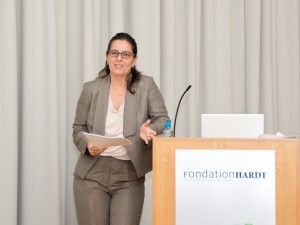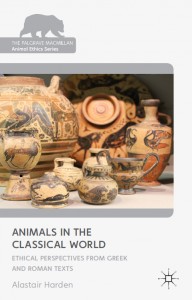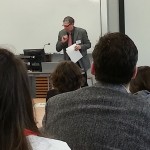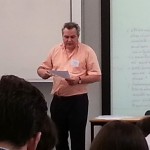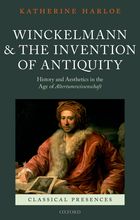The Reception of Greek Lyric Poetry 600BC-AD400: Transmission, Canonization, and Paratext
Classics Department, University of Reading, 6th-8th September 2013
A conference organized by Oxford University and Reading University under the auspices of the Network for the Study of Archaic and Classical Greek Song
(http://greeksong.ruhosting.nl).
Greek lyric, elegiac and iambic poetry have come down to us through the filter of selection, editing, and commentary by ancient scholars. This amounts to a textual and diachronic context for lyric poetry no less crucial to its understanding than the oral and synchronic context of an original performance. This conference aims to appraise the variety of ways in which the reading of the scholarly ‘paratext’ affects our reading of the lyric poems.
Participants: Lucia Athanassaki (Rethymno), Kristina Bartol (Poznan), Hans Bernsdorff (Frankfurt), Anton Bierl (Basel), Gregor Bitto (Eichstätt-Ingolstadt), Deborah Boedeker (Brown), Elsa Bouchard (Montreal), Ewen Bowie (Oxford), Joannes Breuer (Mainz), Michel Briand (Poitiers), Stefano Caciagli (Bologna), Claude Calame (Paris/Lausanne), Vanessa Cazzato (Nijmegen), Willy Cingano (Venice), Thomas Coward (UCL), Bruno Currie (Oxford), José Antonio Fernandez Delgado (Salamanca), Massimo Giuseppetti, (Roma Tre), Theodora Hadjimichael (LMU Munich), Maria Kazanskaya (Paris), Jacqueline Klooster (Ghent), Peter Kruschwitz (Reading), André Lardinois (Nijmegen), Richard Martin (Stanford), Glenn Most (Pisa/Chicago), Greg Nagy (Harvard), Arlette Neumann-Hartmann (Freiburg), Dirk Obbink (Oxford), Anastasia-Erasmia Peponi (Stanford), Tom Phillips (Oxford), Enrico Prodi (Oxford), Xavier Riu (Barcelona), Jessica Romney (Bristol), Ian Rutherford (Reading), Eveline Rutten (Nijmegen), Renate Schlesier (Berlin), Kristina Tomc (Vienna), Maria Xanthou (Thessaloniki).
For further details, see: http://www.reading.ac.uk/classics/research/songconference.aspx.
For further information, contact Ian Rutherford (i.c.rutherford@reading.ac.uk) or Bruno Currie (bruno.currie@oriel.ox.ac.uk)
Programme
Day One: Friday 6th September
12.30 pm Registration and Lunch
1.00 pm Introduction: Bruno Currie and Ian Rutherford
1.30 pm Canons 1 : Transmission
- Glenn Most (Chicago/Pisa): “Τὸν ᾽Ανακρέοντα μιμοῦ. Imitation and Enactment in the Anacreontics”
- André Lardinois, Vanessa Cazzato, and Eveline Rutten (Nijmegen): “A New Philological Approach to the Textual Transmission of Archaic Greek Lyric Poetry”
- D.Obbink (Oxford): “Sailing to Naukratis: Saphho on her Brothers”
3.00 pm Coffee
- 3.30 pm Biographical Paratexts
- Elsa Bouchard (Montreal): “The status of lyric in ancient poetics: Chamaeleon’s method and the lyric ‘I'”
- Massimo Giuseppetti (Roma Tre): “Archilochus between Biographical Fictions and Performance Tradition”
- Kristina Tomc (Vienna): “Μουσάων ἱερὸν στόμα: Pindar as an inspired poet in the ancient vitae, epigrams and Pindaric scholia”
6.00 pm Reception
7.30 pm Dinner
Day Two: Saturday 7th September
10.00 am Canons 2: Canons and Paratexts in the 5th – 4th Centuries
- Jessica Romney (Bristol): “The Vaguarities of ‘We’. Solon and his Democratic Biographical Tradition”
- Kristina Bartol (Poznan): “Structuring the Genre: The 5th-and 4th-Century Authors on Elegy and Elegiac Poets”
11.00 am Coffee
11.30 am Ancient Scholarship 1
- Tom Phillips (Oxford): “History and Historians in Ancient Pindaric Scholarship”
- Michel Briand (Poitiers): “Pindar in the Scholia Vetera in Pindari Carmina, or the lyric poet as a paratextual fiction”
- Theodora Hadjimichael (LMU Munich): “The Peripatetics and the Transmission of Lyric.”
1.00 pm Lunch
2.00 pm Canons 3. The Fifth Century
- Claude Calame (Paris/Lausanne): “Poètes et formes méliques dans les comédies d’Aristophane: genres poétiques et choix canonique”
- Greg Nagy (CHS): “On the Odeum of Pericles and the shaping of the Lyric Canon”
- Maria Kazanskaya (Paris): “Sappho’s Kertomia.”
3.30 pm Coffee
4.00 pm Reception 1. The Second Sophistic
- Renate Schlesier (Berlin): “Athenaios’ Sappho”
- Jacqueline Klooster (Ghent): The (ab)use of poetry in Plutarch’s Life of Solon”
- José Antonio Fernández Delgado (Salamanca) “The Plutarchan reception of the oldest melic poetry”
6.00 pm Conference Dinner
Day Three: Sunday 8th September
10.00 am Ancient Scholarship 2
- Enrico Emanuele Prodi (Oxford): “De poematum titulis apud Pindarum Bacchylidem Simonidem”
- Hans Bernsdorff (Frankfurt): “105 (or so) ways to start a poem: a list of lyric and tragic incipits on a new Michigan papyrus”
- Stefano Caciagli (Bologna): “Sympotic Sappho? The tradition of Sappho’s text”
11.30 am Coffee
12 noon Reception 2. Rome
- Gregor Bitto (Eichstäett Ingolstadt): “Pindar, Paratexts, and Poetry”
- Johannes Breuer (Mainz): “Greek Lyric Poetry in Horace and his commentators”
- Peter Kruschwitz (Reading): “Innoventing Roman lyric poetry: the paradigm of Laevius”
1.30 pm Lunch
2.30 pm Pindaric Paratexts
- Arlette Neumann-Hartmann (Freiburg): “Why cite Pindar? Eustathius of Thessalonica and his works on Pindar”
- Maria Xanthou (Thessaloniki): “Challenging the pseudo-canonical status of Pind. P.2 and 3 M. post S. in the corpus of Pythian odes: the extrapolation of a new category through hard core text”
- Thomas Coward (KCL) “Pindar before Alexandria: Evidence for the Early Transmission of Lyric Poetry”
4.00 pm General Discussion
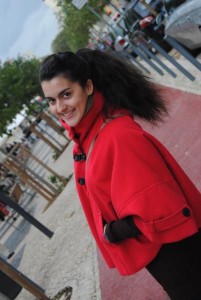 My name is Mariana Gomes Beirão, I’m Portuguese, 21, and I am currently doing a 3 month Erasmus internship in the Ure Museum as part of my MA in Ancient History, which I will defend next year. I have a degree in Languages, literatures and cultures with a major in English and minor in Italian. While doing my degree I discovered my fascination for classics mainly due to one of my Professors’ passion for his job. Rodrigo Furtado greatly influenced and impressed me to the point of, inadvertedly, entirely changing my course of studies. I began taking optional lectures and saw that they interested me more than my mandatory ones. I knew then I had to alter my path.
My name is Mariana Gomes Beirão, I’m Portuguese, 21, and I am currently doing a 3 month Erasmus internship in the Ure Museum as part of my MA in Ancient History, which I will defend next year. I have a degree in Languages, literatures and cultures with a major in English and minor in Italian. While doing my degree I discovered my fascination for classics mainly due to one of my Professors’ passion for his job. Rodrigo Furtado greatly influenced and impressed me to the point of, inadvertedly, entirely changing my course of studies. I began taking optional lectures and saw that they interested me more than my mandatory ones. I knew then I had to alter my path.

